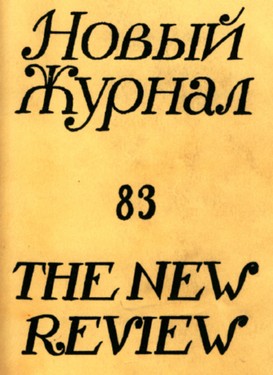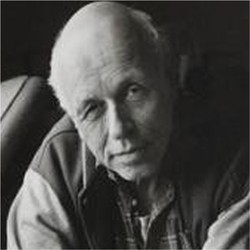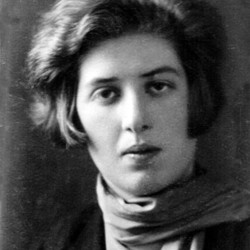Christopher S. Wren. Moscow Writers Expel Novelist

The New York Times (January 10, 1974). Text prepared by Ariana Guzman.
MOSCOW, Jan. 9 – The Moscow Writers Union today expelled Lidiya K. Chukovskaya, a prominent novelist, for having come to the defense of the dissident atomic physicist Andrei D. Sakharov when he was under attack last fall.
Miss Chukovskaya, who is 66, was expelled by a unanimous vote of the secretariat of the Moscow section of the Soviet Writers Union at a two-and-a-half-hour meeting in which she was reportedly charged with having “slipped into an anti-Soviet swamp.”
Mr. Sakharov immediately issued a statement praising Miss Chukovskaya for her “fearless sincerity and good-hearted courage” and calling her essay in his behalf last fall “a continuation of the best Russian humanistic traditions.”
“She knows how and dares to say what many others, with reputations and honors to protect them, prefer to remain silent about,” Mr. Sakharov said.
Came to His Aid
Miss Chukovskaya, who is nearly blind and has a weak heart, came forward at the height of the campaign against Mr. Sakharov last September to argue in an essay that “not one of the wrathful and indignant has the slightest notion about Academician Sakharov, about his actions, proposals and ideals.”
Expulsion from the Writers Union is tantamount to blacklisting, since it deprives writer of the right to publish his works as well as access to a network of writers’ facilities.
As Mr. Sakharov observed in his statement tonight, expulsion has been employed against some of the best-known writers, including Boris Pasternak, Mikhail Zoshchenko, the poet Anna Akhmatova and Aleksandr I. Solzhenitsyn.
Her expulsion today was protested not only by Mr. Sakharov but also by another novelist, Vladimir Maksimov, who was himself expelled for dissident writings published abroad last year.
He ridiculed today’s expulsion meeting as “a routine ideological witches’ sabbath of rank hacks” and said that union membership had become “simply insulting for any honest Russian writer.”
Today, Miss Chukovskaya was permitted to attend the meeting of the Writers Union secretariat, the executive body that runs its affairs, but another writer, Lev Kopelev, who had some to speak in her defense, was barred, sources in the Writers Union said.
Miss Chukovskaya, the daughter of one of the Soviet Union’s best-loved children’s writers, Kornei Chukovsky, is known abroad for a number of works, including “The Deserted House,” a semiautobiographical account of a woman’s life during the Stalinist purges.
2 Meetings Held
The ground for Miss Chukovskaya’s expulsion was laid at two meetings last month.
On Dec. 14, a meeting was held by the children’s literature section, to which she belonged. Miss Chukovskaya was not present, though writers threatened with disciplinary action, especially expulsion, normally have the right of attendance.
Two weeks later, on Dec. 28, Miss Chukovskaya was summoned to a session with the union secretary, Yuri F. Strekhnin, and another writer, A.M. Mednikov, who told her of plans to expel her.
Miss Chukovskaya, who has spoken out in defense of dissidents and other writers facing expulsion or prosecution, was accused of having invented stories about unfair treatment of such persons, according to her recollection. “How do you know these things?” she said she was asked.
“From my life,” she said she responded. “From mothers, wives, sisters. In order not to see, you have to shut your eyes and cover your ears. It’s all around.”
She continued, “they put one of my friends who was completely healthy in an insane asylum. I knew he was healthy.”
“Why does all this happen around you and nothing like that happens around me?” Mr. Mednikov reportedly asked her.
“I don’t know – maybe you are living on an island,” Miss Chukovskaya replied. “You make a special effort not to see.”
MOSCOW, Jan. 9 – The Moscow Writers Union today expelled Lidiya K. Chukovskaya, a prominent novelist, for having come to the defense of the dissident atomic physicist Andrei D. Sakharov when he was under attack last fall.
Miss Chukovskaya, who is 66, was expelled by a unanimous vote of the secretariat of the Moscow section of the Soviet Writers Union at a two-and-a-half-hour meeting in which she was reportedly charged with having “slipped into an anti-Soviet swamp.”
Mr. Sakharov immediately issued a statement praising Miss Chukovskaya for her “fearless sincerity and good-hearted courage” and calling her essay in his behalf last fall “a continuation of the best Russian humanistic traditions.”
“She knows how and dares to say what many others, with reputations and honors to protect them, prefer to remain silent about,” Mr. Sakharov said.
Came to His Aid
Miss Chukovskaya, who is nearly blind and has a weak heart, came forward at the height of the campaign against Mr. Sakharov last September to argue in an essay that “not one of the wrathful and indignant has the slightest notion about Academician Sakharov, about his actions, proposals and ideals.”
Expulsion from the Writers Union is tantamount to blacklisting, since it deprives writer of the right to publish his works as well as access to a network of writers’ facilities.
As Mr. Sakharov observed in his statement tonight, expulsion has been employed against some of the best-known writers, including Boris Pasternak, Mikhail Zoshchenko, the poet Anna Akhmatova and Aleksandr I. Solzhenitsyn.
Her expulsion today was protested not only by Mr. Sakharov but also by another novelist, Vladimir Maksimov, who was himself expelled for dissident writings published abroad last year.
He ridiculed today’s expulsion meeting as “a routine ideological witches’ sabbath of rank hacks” and said that union membership had become “simply insulting for any honest Russian writer.”
Today, Miss Chukovskaya was permitted to attend the meeting of the Writers Union secretariat, the executive body that runs its affairs, but another writer, Lev Kopelev, who had some to speak in her defense, was barred, sources in the Writers Union said.
Miss Chukovskaya, the daughter of one of the Soviet Union’s best-loved children’s writers, Kornei Chukovsky, is known abroad for a number of works, including “The Deserted House,” a semiautobiographical account of a woman’s life during the Stalinist purges.
2 Meetings Held
The ground for Miss Chukovskaya’s expulsion was laid at two meetings last month.
On Dec. 14, a meeting was held by the children’s literature section, to which she belonged. Miss Chukovskaya was not present, though writers threatened with disciplinary action, especially expulsion, normally have the right of attendance.
Two weeks later, on Dec. 28, Miss Chukovskaya was summoned to a session with the union secretary, Yuri F. Strekhnin, and another writer, A.M. Mednikov, who told her of plans to expel her.
Miss Chukovskaya, who has spoken out in defense of dissidents and other writers facing expulsion or prosecution, was accused of having invented stories about unfair treatment of such persons, according to her recollection. “How do you know these things?” she said she was asked.
“From my life,” she said she responded. “From mothers, wives, sisters. In order not to see, you have to shut your eyes and cover your ears. It’s all around.”
She continued, “they put one of my friends who was completely healthy in an insane asylum. I knew he was healthy.”
“Why does all this happen around you and nothing like that happens around me?” Mr. Mednikov reportedly asked her.
“I don’t know – maybe you are living on an island,” Miss Chukovskaya replied. “You make a special effort not to see.”



